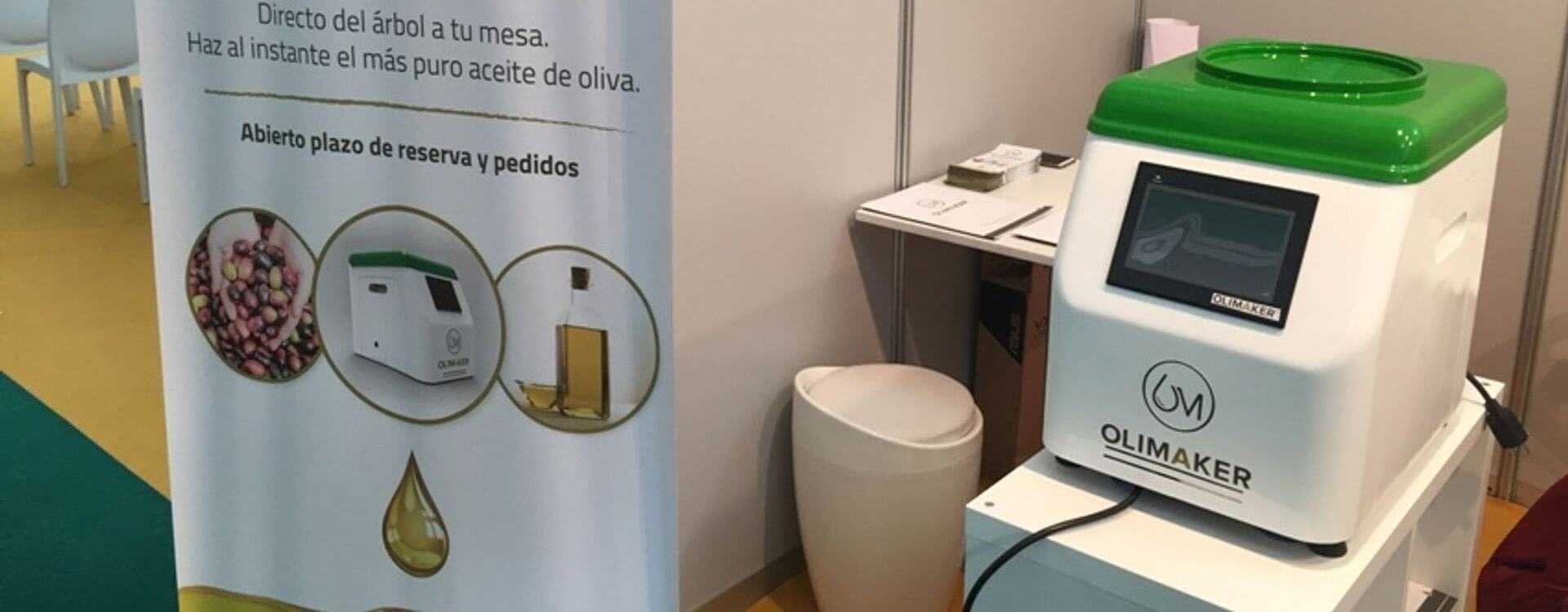Two Andalusian entrepreneurs have created the first “household appliance” that would allow consumers to produce their own olive oil at home.
Luis Serrano and Rafael Ibáñez have already patented Olimaker and expect to begin selling the device in 2020. The pair plan on manufacturing between 15,000 and 30,000 units by then.
“Olimaker was born in an industrial warehouse three years ago,” Serrano said. “Although before reaching this final design, we made three previous prototypes, which continuously improved both functionally and in terms of size and ergonomics.”
Serrano likened Olimaker to an espresso machine, saying that consumers would be able to mill their own olives at home and cold extract oil within 30 minutes. He and Ibáñez gave the first public demonstration of the device at Expoliva in Jaén.
The entire process will take place in a five-liter container, where up to 6.6 pounds of ground olives can be added into a compartment at the top of the device. The ground olives will then go through the malaxation, separation and filtering processes, before olive oil can be taken from a compartment at the bottom.
Details of how exactly the internal milling process works have not yet been provided. Serrano said that the device was expected to retail for €2,200 ($2,470) before tax.

Olimaker at Expoliva
However, the oil production process is expected to be easy and clean. The leftover parts of the crushed olives can even be disposed of as biodegradable waste.
While one of the aims is for Olimaker to be available for domestic use, its creators also hope to develop industrial versions as well.
Serrano said that producers could use Olimaker to sample olives before they begin to harvest in order to see the kind of quality their oils will have.
“It is directed to the olive producer, who wants to know the fat yield of his or her olive and the quality of the oil,” Serrano said. “Also to the oil industry, because it is ideal for evaluating product samples.”
“And of course it is intended for the particular individual consumers,” he added. “Since it makes it possible to make your own oils and incorporate them into the kitchen.”
Serrano and Ibáñez also see Olimaker as a stepping stone project that will open up an entirely new set of products in the industry.
“In the future we want to make bags of olives already prepared to make blends and obtain extra virgin olive oils,” Serrano said. “These could even be enriched with new nutritional properties that surprise the users. They would be like the Nespresso coffee capsules but in bags of olives.”
Serrano hinted that he and Ibáñez were already looking into ways to effectively vacuum package dried olives. He said that he expects to see these products heading to supermarket shelves sometime soon.








